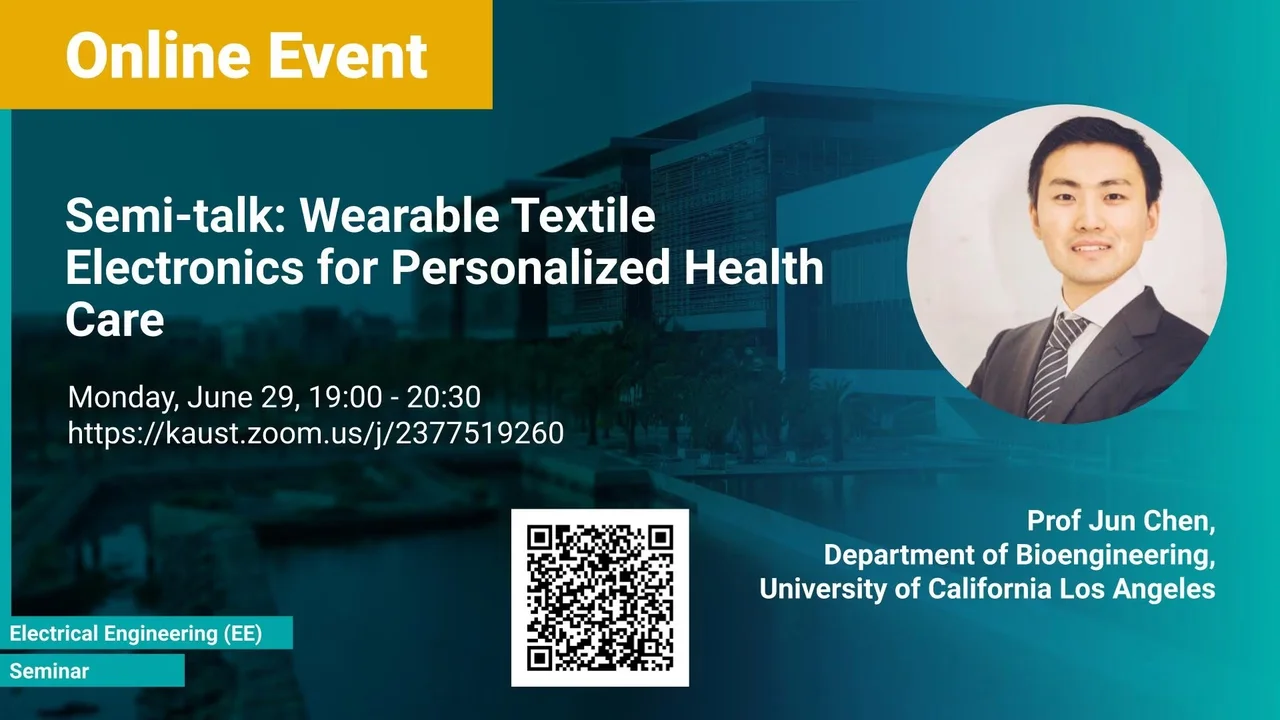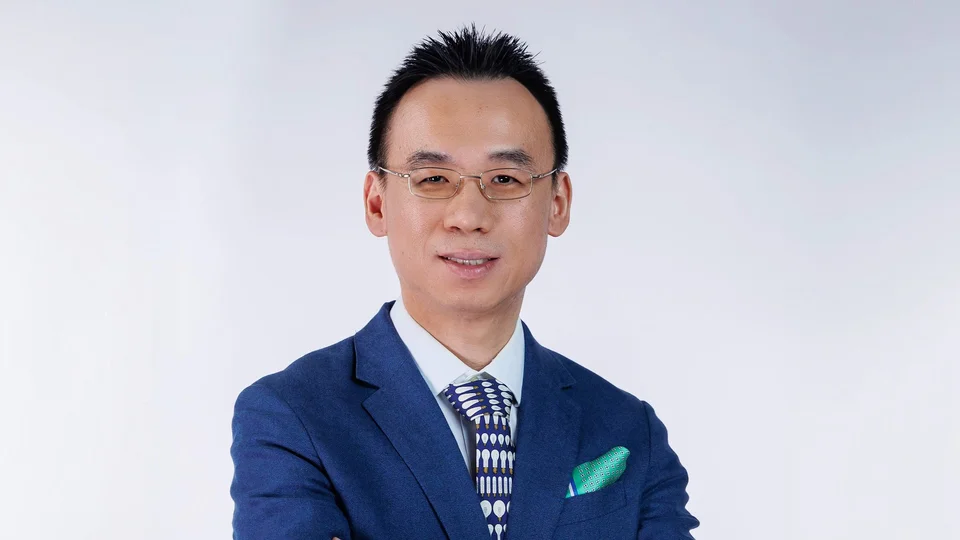
Semi-talk: Wearable Textile Electronics for Personalized Health Care
- Jun Chen, Department of Bioengineering, University of California Los Angeles
KAUST
Dr. Jun Chen is currently an assistant professor in the Department of Bioengineering, University of California, Los Angeles. His current research focuses on nanotechnology and bioelectronics for energy, sensing, environment and therapy applications in the form of smart textiles, wearables, and body area sensor networks.
Overview
Abstract
As the world marches into the era of Internet of Things (IoT) and 5G wireless, technology renovation enables industry to offer a more individually tailored approach to healthcare with more successful health outcomes, higher quality and lower costs. However, empowering the utility of IoT enabled technology in personalized health care is still significantly challenged by the shortage of cost-effective and wearable biomedical devices to continuously provide real-time, patient-generated health data. Clothing is a feature of all human societies. Textiles have been made from a wide range of materials, from natural products (silk, wool, and cotton) to synthetic compounds (peptide, polyamide, and polyester). And many of them, are biocompatible, biodegradable, even bioabsorbable. Merging medical devices with textiles is becoming increasingly desirable, as this can lead to an excellent on-body platform for continuously monitoring human physiological signals while retaining compelling features of textiles, including superior wearable comfort, excellent mechanical strength, softness to accommodate complex deformation, light weight, low cost, flexibility, even foldability. In this talk, I will introduce our research on smart textiles for biomedical monitoring and personalized diagnosis, textile for therapy, and textile power generation as an energy solution for the future wearable medical devices.
Brief Biography
Dr. Jun Chen is currently an assistant professor in the Department of Bioengineering, University of California, Los Angeles. His current research focuses on nanotechnology and bioelectronics for energy, sensing, environment and therapy applications in the form of smart textiles, wearables, and body area sensor networks. He has already published 2 books, 115 journal articles and 70 of them are as first/corresponding authors in Chemical Reviews, Nature Energy, Nature Electronics, Nature Sustainability, Nature Communications, Joule, Matter, and many others, which were selected as research highlight by Nature and Science 4 times. He also filed 14 US patents and licensed 1. He is currently an Associate Editor of Biosensors and Bioelectronics, and an Editorial Board Member of Nano-Micro Letters, Frontiers in Pharmacology, Frontiers in Chemistry, and Smart Materials in Medicine. With a current h-index of 61, he was identified to be one of the world’s most influential researchers in the field of Materials Science by the Web of Science Group, and on the global list of The Highly Cited Researchers 2019.
